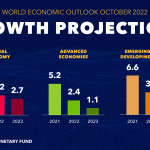The EU and Schengen countries announced that they are reopened to travelers from outside their borders for non-essential travel into the EU for residents of the following third countries:
Algeria, Australia, Canada, Georgia, Japan, Montenegro, Morocco, New Zealand, Rwanda, Serbia, South Korea, Thailand, Tunisia, Uruguay, China, subject to confirmation of reciprocity.
Residents of Andorra, Monaco, San Marino, and the Vatican/Holy See should be considered as EU residents.
Every two weeks this list of countries will be reviewed and the information will be updated. Click here for more info
UK citizens are still treated the same as EU citizens until the end of the year as part of the Brexit transition period. They are therefore still able to enter the EU and Schengen areas until that date, even though the entry of citizens of third countries into EU/Schengen via the UK would not be allowed currently.

- Hotel Industry Performance in Asia Pacific: A Gradual Improvement, but Lagging Occupancy Rates
 The hotel industry performance in the Asia Pacific region is seeing a gradual improvement in its performance, with the average… Read more: Hotel Industry Performance in Asia Pacific: A Gradual Improvement, but Lagging Occupancy Rates
The hotel industry performance in the Asia Pacific region is seeing a gradual improvement in its performance, with the average… Read more: Hotel Industry Performance in Asia Pacific: A Gradual Improvement, but Lagging Occupancy Rates - Would you ever Travel these the Most Violent Cities in the World?
 The world’s most violent cities, a disturbing reality that haunts the streets with terror and bloodshed. In these urban jungles,… Read more: Would you ever Travel these the Most Violent Cities in the World?
The world’s most violent cities, a disturbing reality that haunts the streets with terror and bloodshed. In these urban jungles,… Read more: Would you ever Travel these the Most Violent Cities in the World? - High Growth Economies in 2022
 Due to Omicron limitations slowing down economic activity in this final quarter of the Indian fiscal year, the GDP of… Read more: High Growth Economies in 2022
Due to Omicron limitations slowing down economic activity in this final quarter of the Indian fiscal year, the GDP of… Read more: High Growth Economies in 2022

The EU said criteria for the green light on travel were that countries have had new case counts relative to population size close or below the EU average for the last 14 days and that the case counts followed a downwards trend. Also, the countries’ COVID-19 response had to be rated as solid and the case counting as reliable in the eyes of the EU.
The new rules apply to all 27 EU members, Schengen area countries Iceland, Norway, Switzerland and Liechtenstein as well as de-facto Schengen states Andorra, San Marino, Vatican and Monaco.
Below specific categories of travellers with an essential function or need are exempt from the rule.
- Healthcare professionals, health researchers, and elderly care professionals;
- Frontier workers;
- Seasonal workers in agriculture;
- Transport personnel;
- Diplomats, staff of international organisations and people invited by international organisations whose physical presence is required for the well-functioning of these organisations, military personnel, and humanitarian aid workers and civil protection personnel in the exercise of their functions;
- Passengers in transit;
- Passengers traveling for imperative family reasons;
- Seafarers
- Persons in need of international protection or for other humanitarian reasons
- Third-country nationals traveling for the purpose of study;
- Highly qualified third-country workers if their employment is necessary from an economic perspective and the work cannot be postponed or performed abroad.
